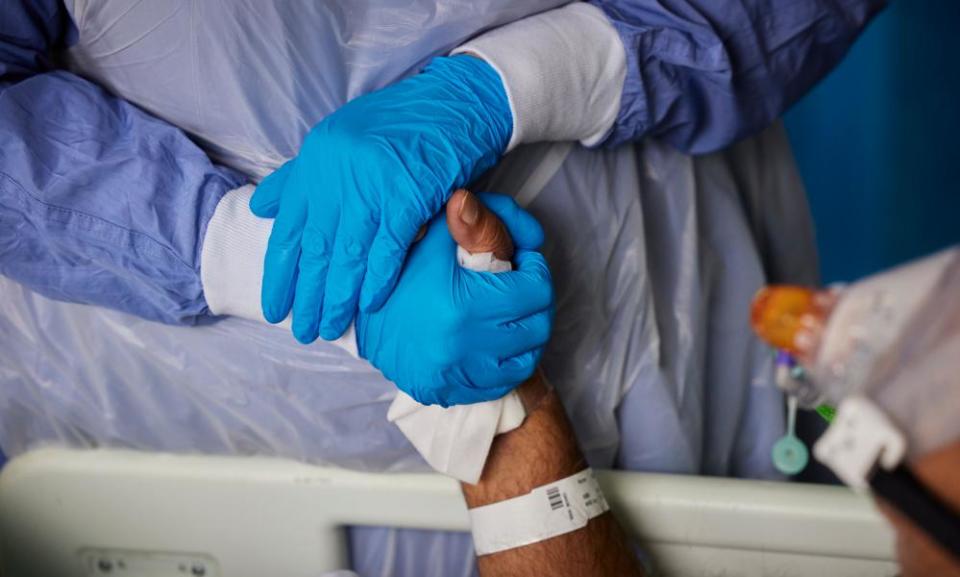Samaritans to extend help for frontline health and care workers

The Samaritans is extending its help for frontline health and care workers amid rising demand for long-term support for stress and anxiety.
More than 20,000 health and care workers have contacted the charity’s helplines since Covid started spreading last spring, and the Department of Health and Social Care has agreed to extend funding for a dedicated line until at least September.
The Samaritans, which aims to help anyone who is struggling to cope and reduce rates of suicide, said many callers were describing feelings of guilt about not living up to “superhero” expectations. Others were reporting physical and emotional exhaustion 15 months since the pandemic set in.
The helpline was set up at the start of the pandemic to help frontline staff struggling with the initial crisis. It is not intended for people who are feeling immediately suicidal, but is in place to support the UK’s nearly 3 million health and social care workers as earlier feelings of being frightened and overwhelmed develop into longer-term worries.
“It’s only now, a year on, that we are thinking oh God, what a year,” said Claudia Tomlin, a matron at Great Ormond Street hospital who is responsible for about 80 staff. “There are elements of post-traumatic stress disorder and things that weren’t processed at the time because there wasn’t space.”
An NHS staff survey carried out last autumn found 44% of staff suffered work-related stress in the last 12 months – a marked increase on the previous year.
The trade union Unison also surveyed NHS and social care workers and found almost half said they had not coped well mentally during the pandemic, with fear of getting Covid, being unable to socialise with friends and family and increased workload described as the key factors.
Ben Phillips, the head of service programmes at the Samaritans, said some callers were describing guilt at not living up to the public perception of them as heroes.
“It’s not that they aren’t heroes but that they are not superheroes – they are not invulnerable,” he said.
Others described burnout – physical and emotional exhaustion – and questioned whether they had the capacity to carry on with their jobs.
“At the moment callers are focusing less on the actual experience and are more reflective,” said Phillips. “Calls are getting longer and people are wanting longer-term support.”
The Samaritans said that more a fifth of the calls for help to its main number have referenced coronavirus in the past year. Key concerns have been access to mental health support during lockdown, social isolation, relationship breakdown and money worries.
The Samaritans’ dedicated helpline for NHS and social care workers in England is 0800 069 6222; the number in Wales is 0800 585 0555

 Yahoo Finance
Yahoo Finance 